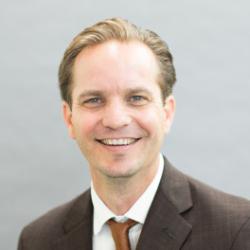Today’s demolition of the already half-collapsed Morandi Bridge is the definitive end of an economic revival that began over 50 years ago in the mega Italian port city of Genoa. The economic boom lasted well into the early 2000s thanks to what was then considered a perfect marriage of civil engineering and rapidly globalizing commerce.
Genoa (named from the Latin janua for “door” ) was since ancient Roman times considered one of the principle gates through which Mediterranean commerce would be pass to the known world.
After the discovery of America by the Genoese explorer Christopher Columbus, that very same door blew wide open to infinite possibilities of global trade as the Genoese Maritime Republic received and sent products between the New and Old Worlds, transforming it into an economic super power between 1500 and 1600.
Genoa’s Morandi Bridge, when launched in 1967, represented the hope of a new beginning following the furious rebuilding period of post-World War II Europe. The reinforced concrete bridge was a breakthrough in engineering and facilitated the shipment to and from 22 kilometers of Genoese ports north to the two other cities of the Italy’s triangolo industriale – Turin and Milan. It also opened up faster land routes out of the city to nearby France and the rest of central Europe.
My late father-in-law, a dutiful member of Italy’s carabinieri armed special forces, was on duty for the Morandi bridge’s spumante-drenched inauguration party on a beautiful late summer day of September 4, 1967. He was part of the anti-terrorist unit assigned to invigilate anything and anyone that might disrupt the city’s celebration of increased access to trade and travel.
Many had feared that violent members of Marxist hippy revolutionaries would sneak in and disrupt the ceremony. Fortunately, this never happened. What the filo-Soviet youth had desired was to impede massive industrial trade in and out of Genoa, specifically preventing more container shipments from Genoese steelworks and the city’s ports reaching the rest of the free world. The dream was an economically isolated Italy that would be forced ally itself to the U.S.S.R. once in state of economic desperation and in political allegiance to communism.
To the contrary, the bridge was opened and millions of motorists and truckers easily passed over the bridge every year, from what was once the most congested port exit out of the city. After the launch of the Morandi Bridge, the Genoese economy accelerated to an all-time high in the 20th century. A middle class exploded as more jobs were created at port docks, import-export offices, steel mills, train construction centers, shipyards and blossoming robotics industry nearby in the 1990s and 2000s. Through the door of Genoa Italian brands flowed all over the globe. What’s more, hundreds of thousands of job-seeking southern Italians emigrated to the city which, to them, represented the Italian dream.
What’s on the near horizon? A new bridge design has been unveiled by world-famous Genoese architect Renzo Piano and will soon be commissioned and according to the latest and best of civil engineering. And with it, the hope for a great new beginning for the city that, for now, must slightly close its door to its ultimate economic potential.
Featured screenshot image and video credit: Youtube – Rep TV

